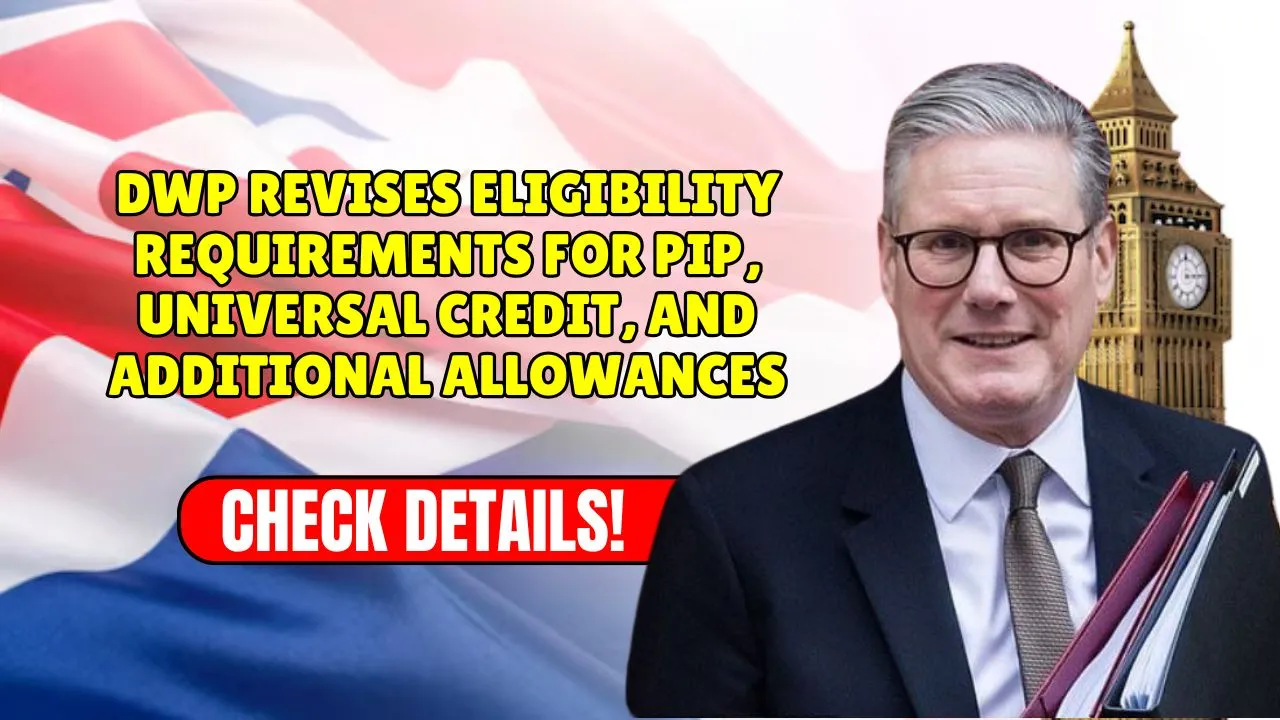PIP Changes 2025: The Department for Work and Pensions (DWP) has revealed plans that could bring one of the most significant overhauls to disability support in the UK in recent years. Within the next two years, most Personal Independence Payment (PIP) awards are set to stop, impacting millions of claimants. This move, driven by cost concerns and ongoing political shifts, raises key questions for current recipients and those planning to apply for support.
The proposed PIP Changes 2025 will affect how benefits are awarded and what forms of support people can expect. With the majority of current claims being short-term, these changes could include replacing cash with vouchers and stricter reassessment processes. In this article, we break down the expected timeline, new rules, what claimants need to do, and how different parts of the UK will be impacted.
PIP Changes 2025: What to Expect
The upcoming PIP Changes 2025 will bring a shift in how disability support is provided. These changes aim to control rising PIP costs and focus support on those who need it most. DWP is considering replacing some cash payments with equipment or treatment vouchers, and the reforms could reshape how short-term awards are handled.
Here is a clear overview of what we know so far:
Overview Table
| Change | Details |
| Major Reform Timeline | Within 2 years |
| Who It Affects | Most new and existing short-term PIP claimants |
| Award Duration | Short-term: 9 months to 2 years; Long-term: Over 2 years |
| Current Short-Term Award Share | 79% of PIP awards |
| Proposed Replacement | Vouchers instead of some cash payments |
| Consultation Deadline | 22 July 2025 |
| Scotland Transition | PIP replaced with Adult Disability Payment (ADP) |
| Labour’s Role | Reviewing proposals; aim to support disabled people into employment |
DWP to Stop Most PIP Payments Within 2 Years
Currently, a large number of PIP recipients receive short-term awards that last between nine months and two years. When these expire, recipients must reapply to continue receiving benefits. The DWP now plans to end most of these short-term claims as part of its effort to manage increasing costs.
Instead of renewing all short-term awards automatically, the DWP may tighten eligibility and shift to non-cash support options. This could make the renewal process more selective and might even eliminate cash support for some groups, depending on the consultation results.
DWP to Stop Most PIP Payments Checklist
Labour, now in government, has stated that it will review the current Conservative reform proposals. While it has not committed to the DWP’s exact plan, it has promised better support for disabled people in employment. The party aims to ensure claimants can test working without immediately losing their benefits—an idea welcomed by many disability advocates.
Here’s what’s currently happening with PIP awards:
- Most new PIP claims are short-term.
- Benefits automatically end after the award period unless a new application is submitted.
- The proposed replacement system could involve vouchers instead of direct payments.
- Claimants will still need to report any changes in their condition.
With Labour now overseeing the transition, more updates are expected after the consultation ends in July 2025.
New PIP Payments Within 2 Years
A Green Paper launched by the DWP is seeking feedback on how future schemes should address extra costs faced by disabled individuals. The paper is part of the consultation running until July and could influence whether new types of support, like treatment vouchers or equipment subsidies, will be introduced.
In the quarter ending May 30, 2025:
- 79% of PIP awards were short-term (less than 2 years)
- 12% were long-term (over 2 years)
- 8% were ongoing, often due to permanent conditions
PIP is not means-tested, meaning anyone can apply, regardless of income or savings. Still, only 14% of current recipients are working, underlining the financial importance of the benefit.
PIP Payment Replacement
As part of the proposed PIP Changes 2025, DWP is considering how to better tailor benefits to individual needs. The changes include:
- Introducing vouchers for equipment or therapy instead of cash.
- Revising award lengths based on treatment plans or likelihood of improvement.
- Penalizing those who do not report changes in condition (including possible imprisonment up to 8 months).
DWP evaluates claims by reviewing the medical conditions, expected changes, and planned treatments. Fixed-term awards can last up to 10 years, while ongoing awards are often reserved for people who would be at State Pension age at the time of reassessment.
All We Know
While nothing is final until after the consultation, it’s clear that PIP Changes 2025 will reshape the system. According to the Institute for Fiscal Studies, the main cost savings would come from limiting new awards and stricter reviews at the end of fixed terms.
In Scotland, PIP is already being phased out and replaced with Adult Disability Payment (ADP). This process began in 2022, and more than 218,800 claimants are expected to be transferred by the end of 2025.
In Wales, PIP continues under UK government control. Northern Ireland runs its own version of the benefit via the Department for Communities. As each region has its own approach, claimants should follow updates specific to their location.
Frequently Asked Questions
1. Will my current PIP payments stop immediately?
No. Most changes will affect future claims and reviews of short-term awards. If your award is ongoing or long-term, it should continue until your next review.
2. What happens after July 2025?
That’s when the consultation ends. The government may then begin outlining how new support methods—like vouchers—will be introduced.
3. Do I need to reapply if my award ends?
Yes. If you’re on a short-term award, you must submit a new application before the end date to avoid payment gaps.
4. Will Labour cancel the reform?
Labour hasn’t committed either way. They are reviewing the proposals but have emphasized improving job opportunities and financial stability for disabled people.
5. Is PIP being scrapped across the UK?
No. In England, Wales, and Northern Ireland, PIP still exists for now. Only Scotland is fully transitioning to a new system called ADP.
Final Thoughts
The PIP Changes 2025 represent a major shift in how the UK government supports disabled individuals. From new payment structures to eligibility reforms, the next two years could bring big changes for millions. Whether it’s vouchers replacing cash or stricter short-term award reviews, it’s crucial for claimants to stay informed and prepare for what lies ahead.
If you currently receive PIP or plan to apply soon, keep an eye on updates from DWP and your local authority. You may also want to join the consultation before it closes in July. Share this article, discuss it with others, and check back regularly for the latest on benefit reforms and financial support tools.








